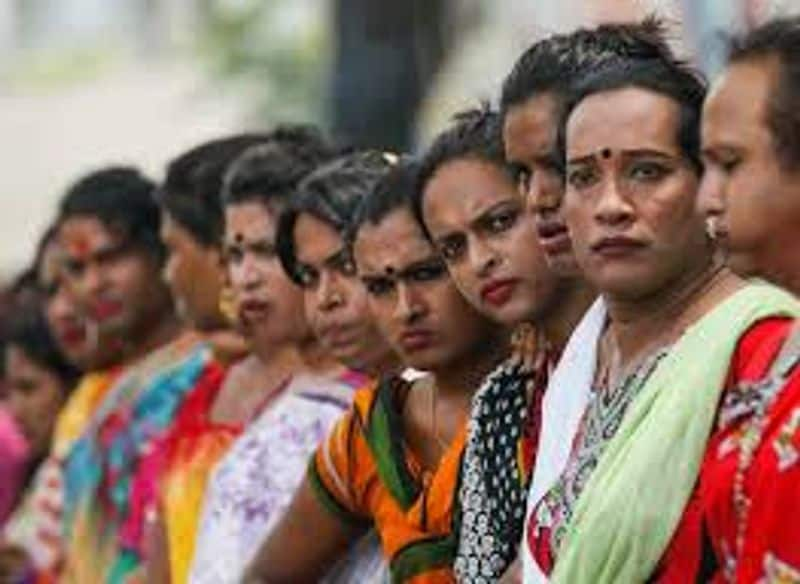LGBT Pride Month 2020: Healthcare tips for lesbians, bisexual women
The month of June was chosen for LGBT Pride Month to commemorate the Stonewall riots, which occurred at the end of June 1969. As a result, many pride events are held during this month to recognize the impact LGBT people have had in the world

Bengaluru: “History owes an apology to the members of this community (LGBT) and their families, for the delay in providing redressal for the ignominy and ostracism that they have suffered through the centuries. The members of this community were compelled to live a life full of fear of reprisal and persecution.” On September 6, 2018, in a long-awaited decision, the Supreme Court ruled that consensual sexual relations between adults of the same gender was not a crime in India.
LGBT stands for lesbian, gay, bisexual, and transgender. They are terms used to describe people’s sexual orientation or gender identity.

Despite decriminalisation of gay sex among consenting adults in private, the LGBT community continues to face social stigma and non-acceptance in society.
Health care for this group of people can pose a problem as it involves “coming out” for the person to discuss their problems adequately. Added to this the doctors and healthcare personnel that are involved in their care may not have the skills and sensitivity required to deal with them. The barriers to adequate health care for this group are concerns about confidentiality, discriminatory attitudes of the healthcare personnel.
So, what are the medical problems that this particular group of women face.
Psychological
Mental health issues, specifically depression, tend to be more common in lesbians. This may be due to a lack of familial and societal support when growing up. In some societies a sense of isolation with a hidden lifestyle may contribute to emotional stress that can predispose to substance abuse, depression, and suicide. Lesbians are more likely to abuse alcohol and drugs compared to heterosexual women.
Intimate partner violence is also common although underreported by the sufferer. Adolescents are at high risk of depression, eating disorders, suicide and substance abuse.
Cancers
Compared with heterosexual women, lesbian women have fewer pregnancies. This may put them at risk of cancers, such as breast or endometrial or ovarian cancer. This may be due to, as studies suggest, nulliparity, late childbearing and absence of breast feeding and reduced use of combined oral contraceptive pills.
In women who have only homosexual contact the risk of cervical cancer may be reduced. However, screening for cervical cancer should follow national guidelines in this group of women as well.
General health
Several studies have reported higher prevalence of obesity, tobacco use, and alcohol in this group of women. These factors may increase the risk of diabetes, lung cancer and heart attacks. So, women should be counselled about this and appropriately screened.
How doctors can help
There are numerous ways obstetrician–gynecologists can better meet the needs of lesbian and bisexual patients in their practices. Specific suggestions for changes in the clinic setting include the following (Health Care for Lesbians and Bisexual Women – Committee Opinion ACOG May 2012 Reaffirmed 2018):
1. Inform receptionists and other office staff that patients of all sexual orientations and gender identities are welcome in the practice and should be treated with the same respect as other patients.
2. Modify office registration forms and questionnaires that require patients to identify their relationship and behavioral status to obtain more accurate and useful information. Examples include the following:
• Are you single, married, widowed, or divorced, or do you have a domestic partner?
• Are you or have you been sexually active with anyone — male, female, or both male and female partners — or are you not sexually active?
• Who are you sexually attracted to — men, women, or both men and women?
The form can state that response to these questions is optional. If the patient does not answer these questions, she can be asked in person.
3. Have a nondiscrimination policy for your office posted in the reception area. For example: “This office appreciates diversity and does not discriminate based on race, age, religion, disability, marital status, sexual orientation, or perceived gender.”
4. Use inclusive language with all patients and neutral terms such as “partner” or “spouse” rather than “boyfriend” or “husband” when a patient’s partner status is unknown.
(The author — Dr Prathima Reddy, MBBS, MRCOG (London), FRCOG (London), FACOG (USA), is the director, senior obstetrician and gynaecologist at Fortis La Femme Hospital, Richmond Road, Bengaluru)

 subscribe to Asianet Newsable WhatsApp channel by clicking here.
subscribe to Asianet Newsable WhatsApp channel by clicking here.












